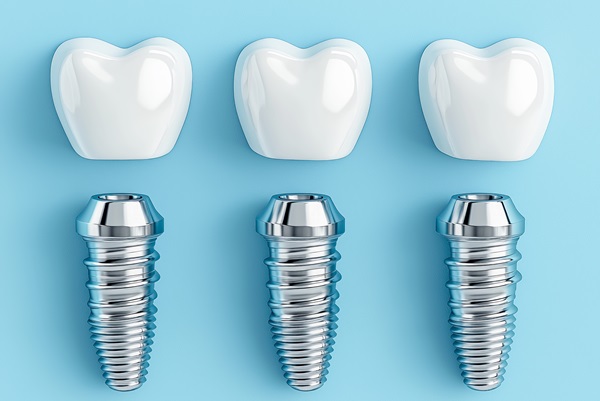What Are Small Dental Implants?

Small dental implants are a unique alternative to traditional dental implants. They are quickly becoming more popular and are more often recommended by dentists for patients who seek teeth replacement. It is helpful to understand exactly what small dental implants are in order to decide if they are right for you.
A detailed review of small dental implants
The best way to determine if small dental implants are right for your teeth replacement needs is to visit a dentist to discuss treatment. However, this review offers a general overview of small dental implants, including insights into what they are exactly, how the treatment process works, and how they differ from traditional dental implants.
Small dental implants explained
A small dental implant, also called a mini dental implant, is an alternative to the traditional implant. The primary difference is that they are smaller and subsequently, do not require as invasive of a placement process. Small dental implants are less than 3 mm in diameter, compared to traditional implants, which are 3.25 to 5 mm in size. Small dental implants are effective in permanently holding replacement teeth in place and do not require as long of a treatment process.
How the small dental implants process works
The small dental implant process begins with a consultation visit. During the consultation, the dentist can review dental X-rays and determine if small dental implants are right for the patient, in addition to answering any questions that the patient has about treatment. The placement procedure is less invasive than with traditional dental implants. Small dental implants do not require an invasive surgical procedure and can be placed in one dental visit, whereas traditional dental implants require two visits.
Why choose small dental implants
Dental implants are ideal for certain patients, such as those with one or more missing teeth and who are not willing to undergo a more invasive surgical procedure or who do not have enough bone in the jaw to support traditional dental implants. However, they do not offer the same level of strength and durability that traditional dental implants do. The dentist can explain the pros and cons of all available treatment options during the consultation visit.
How to take care of small dental implants
Patients can care for their small dental implants the same as natural teeth. This should include brushing several times daily, flossing regularly, and using mouthwash as directed by the dentist. While the patient has the functional capabilities to chew tough foods with their small dental implants, it is important to avoid anything that may cause damage, such as chewing ice, teeth grinding, and consuming excessive sugar.
Contact our team today for a small dental implants consultation
Are you considering small dental implants to replace one or more missing teeth? If so, then call our team today to arrange a consultation visit. We can conduct an oral examination to determine if small dental implants are a viable option and explain the pros and cons of all other available treatment solutions.
Request an appointment here: https://spectrumsurgical.net or call Facial Spectrum at (816) 524-4334 for an appointment in our Lee's Summit office.
Check out what others are saying about our dental services on Yelp: Dental Implants in Lee's Summit, MO.
Recent Posts
The jawbone is the part of the face that holds many essential elements together, such as the teeth, ligaments, and muscles; however, bone grafting may sometimes be necessary if the jawbone is too weak to perform these tasks. A person’s jawbone can deteriorate over time, whether due to age, genetics, poor oral health, cancer, or…
Finding lasting relief from issues such as misalignment and facial asymmetry can involve specialized procedures. Fortunately, corrective jaw surgery is a reliable option for addressing these concerns. A dental specialist realigns the upper or lower jaw during this process to promote better function and comfort. Although the procedure can benefit health and appearance significantly, a…
Many individuals seek rhinoplasty to enhance facial harmony, improve nasal function, or correct structural abnormalities. As a surgical procedure that reshapes the nose, rhinoplasty can address aesthetic concerns as well as breathing difficulties caused by structural defects such as a deviated septum. Understanding the consultation process, surgical techniques, and what to expect from the recovery…
The facelift is one of the oldest and most well-known cosmetic surgeries for restoring a youthful appearance to the face. If you are considering this procedure, it is important to understand the steps of the process and the time commitment involved. The specifics of the process can vary depending on the patient; however, here is…


